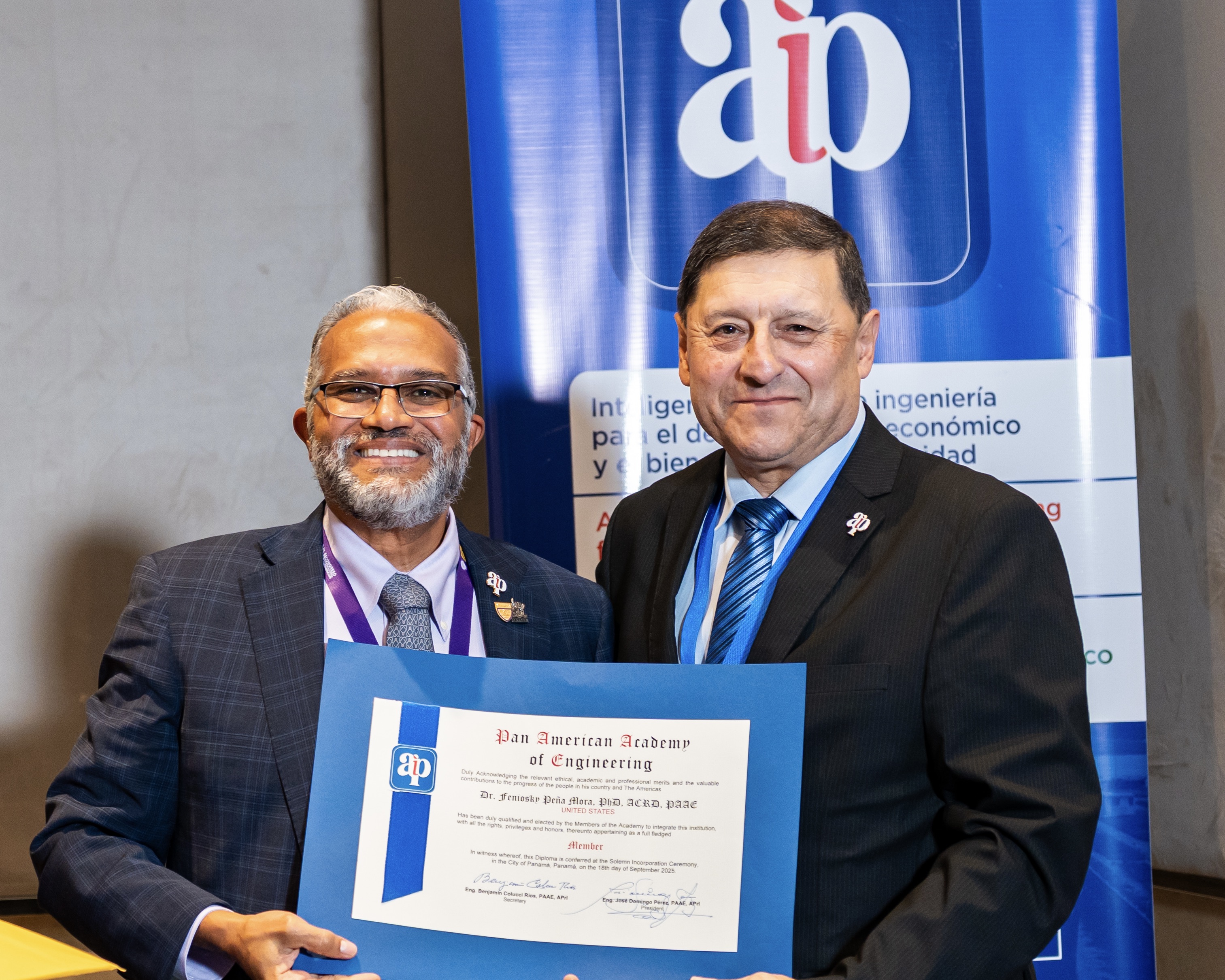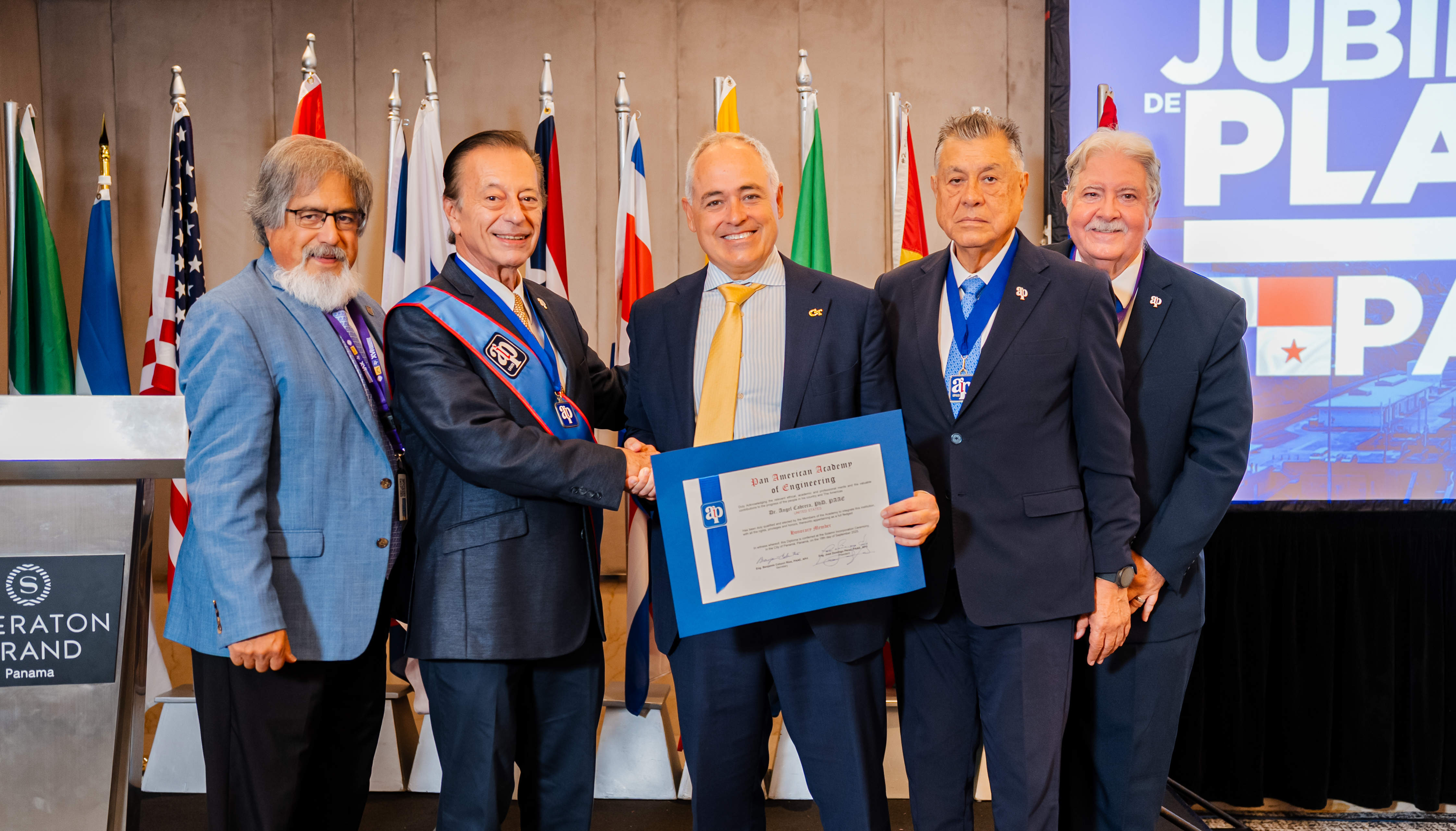Washington Declaration 2023 - UPADI
April 14, 2023 in Washington, D.C., United States of America
Pan American Union of Engineering Associations
WASHINGTON DECLARATION 2023
A Call to Action for World Leaders to Engineering Education and Development. Mitigating Damage from Natural Disasters, Designing and Building Resilient Works
and Affirmative Actions to Mitigate the Impact of Climate Change.
Meeting in the city of Washington, D.C., the members of the Pan American Union of Engineering Associations, UPADI, aware of the responsibility of engineers with the”Engineering Education and Development to Mitigate Damage from Natural Disasters, Design and Build Resilient Works, and Mitigate the Impact of Climate Change” agree to present and share their findings with professionals and authorities from all countries of the hemisphere and the world as described;
A Global Priority
Despite the wide dissemination of information and concerted efforts around the planet, greenhouse gas emissions have not been reduced. Their impact on Climate Change affects the frequency and magnitude of natural disasters and their consequences; the loss of human life, fauna and flora, the destruction of ecosystems and livelihoods for humanity and the destruction of homes, schools, hospitals and infrastructure. This impact hangs most intensely on the most vulnerable populations, marginalized communities, small islands and developing countries.
Mitigate the Impact of Climate-Related Disasters
To achieve the Sustainable Development Goals set for the year 2030 and zero net emissions by 2050, it is estimated that it is necessary to invest about Seven Trillion dollars (U.S. UU.) annual infrastructure that allows for a future of low carbon emissions and climate resilient. The effective investment of such a quantity of resources requires concerted action by those responsible for the planning, development, design, construction and operation of each work.
Since CO2 emissions, together with other factors, are the result of human activities such as development and construction, it is up to those responsible for the planning, design, construction and operation of all kinds of works, to integrate into all processes, measures to reduce, minimize and mitigate carbon emissions and adapt to climate change. Sustainable construction resistant to climate shocks represents the route to follow to achieve Resilience, achieve the Net Zero objective and ensure the well-being of all ecosystems and humanity.
Failure Is Not an Option and It's Up to Engineers to Take Responsibility
The conventional undertaking of infrastructure projects does not achieve the objectives set out above and the moral consequences of failure are unacceptable. The development and construction of works that allow for a future of low carbon emissions and resilient to climate is essential to alleviate the impact of climate change and guarantee the best quality of life for all.
To achieve the objectives of the Paris Agreement and Sustainable Development, it is essential to incorporate engineers in the planning of all projects from conception to operation, integrating knowledge of human behavior, knowledge management and management of media and communications in all phases of project management.
This role requires that managerial knowledge be integrated into the technical training of engineers, for which University/Industry alliances must be developed that allow young engineers to contribute their creativity and entrepreneurial spirit early in their professional performance and thus achieve sustainable, resilient works that last.
The Impact of Climate Change on the Legal System
It is imperative to recognize the consequences of climate impact on the Earth's surface, coasts, glaciers, oceans, seas, lakes, river basins, mangroves and wetlands. This reality already affects land on coasts and riverbanks where the right to private property already conflicts with the right to the use of recreational areas and the exploitation of common heritage. Consequently, without further delay, the legal system must be tempered to ensure the resolution of conflicts that may arise in each country, as well as in the international arena.
To move from Words to Action, it is proposed specifically:
- Incorporate, first and foremost, the knowledge of scientists, engineers and professionals in the design standards, building codes, modernization, construction and operation of all public and private works, as well as in the management of risks inherent to each work.
- Disseminate the impact of Climate Change and how you can contribute to mitigating the impact through public education from primary levels.
- It must be ensured that in all decision-making, special consideration is given to the circumstances of the populations of the most vulnerable countries and communities.
- Integrate green construction and nature-friendly solutions into every development
- Promote and implement fair, inclusive and sustainable financing in all construction
- Strengthen essential infrastructure to achieve its resilience to climate change
- Mitigate the vulnerability of all projects to natural disasters to ensure the availability of affordable insurance and reinsurance, mitigate interruptions and ensure rapid recovery.
- Encourage and implement transparent and sustainable hiring practices
- Fiscally encourage the financing and construction of renewable energy systems, water harvesting and recycling systems, the use of recyclable materials and safe, accessible and affordable infrastructure
- Implement codes and practices that promote and ensure the reduction of the carbon footprint.
- Promote research and innovation in innovative technologies and digital transformation, which promote sustainable and resilient development.
- Promote the planning, design, construction and operation of sustainable and resilient works to the impact of climate change.
Integration of Initiatives and Collaboration
Aware of the initiatives of regional and international organizations and the importance of integrating those with which a common vision is maintained, UPADI supports fundamental elements of The San Juan Declaration 2022 of the Pan-American Academy of Engineering, The Stimson Declaration of the ASCE and those of Atlas Partnership for Climate Resilient Infrastructure, such as:
- International exchanges to promote the collaboration of all engineers in the planning, design, construction and operation of quality, sustainable and resilient works
- Prepare national infrastructure assessments to prepare reference reports that promote optimal quality in the development, design, financing and construction of works.
- Ensure the development, design, construction and operation of quality works with the highest regulations and guidelines to promote a better quality of life, sustainability, mitigation, adaptation and resilience to protect the environment and ensure the well-being of humanity in all corners of the world.
- Attract more investment and better insurance coverage by integrating total quality processes that reduce risks to life and property, thus preserving lives and resources.
Signed in Washington, D.C., United States of America during the Meeting of the Pan American Union of Engineering Associations, UPADI, today, March 14, 2023.




